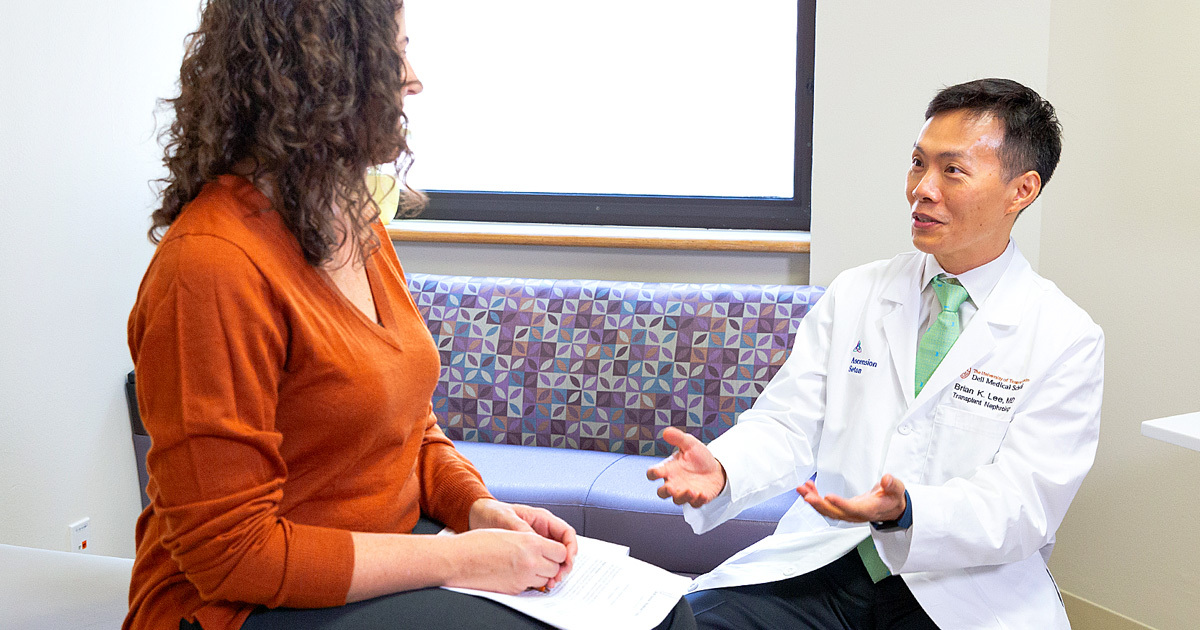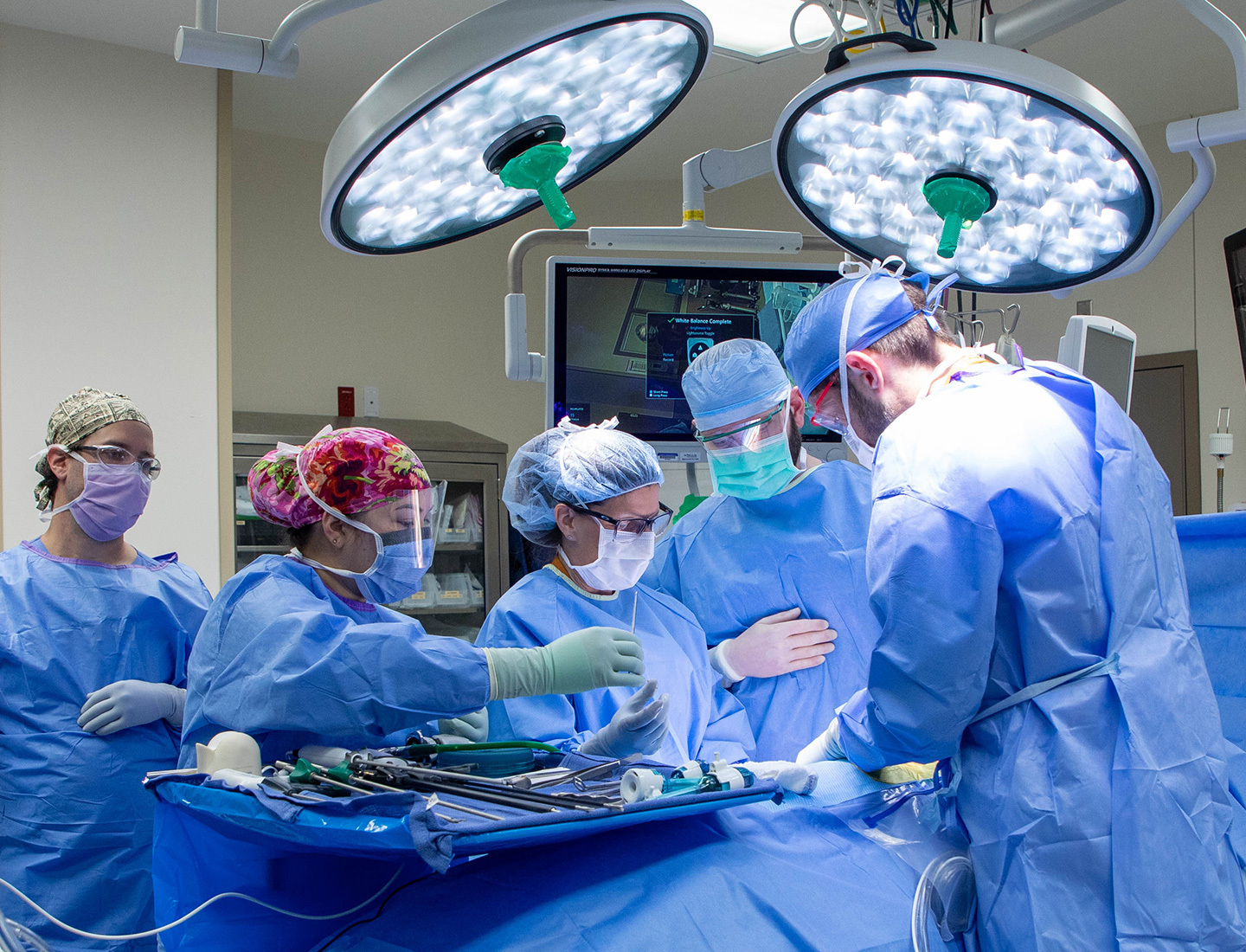Giving the Ultimate Gift
Austin woman is first to donate a kidney through the Abdominal Transplant Center to someone she has never met
Reviewed by: Victoria Threadgould and Nicole Turgeon, MD, FACS
Written by: Erich Pelletier
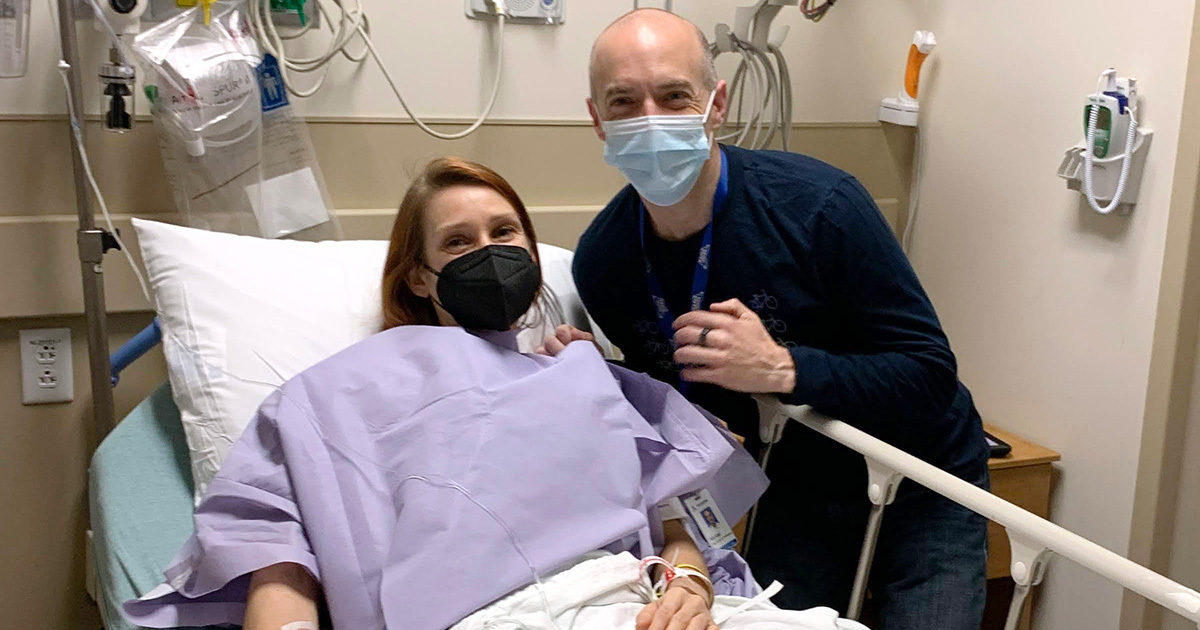
Victoria Threadgould is a 39-year-old marathon runner, Pilates instructor, and grant writer who has lived in Austin, Texas for the last ten years. When Victoria came across an announcement about the opening of the Abdominal Transplant Center, a clinical partnership between Ascension Seton and UT Health Austin, last November, she reached out and inquired about becoming a living kidney donor. By the end of 2021, she was approved to donate.
Altruistic, or “nondirected,” donation is a rare but increasingly popular form of living organ donation that allows healthy people to help improve and save the lives of patients living with kidney failure. While the majority of kidney transplants occur with organs retrieved from donors who are deceased, between 5,000 and 6,000 kidney transplants in the U.S. annually use kidneys that come from living donors. Each year, approximately 300 of those living donors participate in a process in which one of their kidneys is procured for use by a patient who is unknown to the donor but who is an approved match for the donated organ.
Learn more about the Living Kidney Donor Program within the Abdominal Transplant Center.
The Need
Over 90,000 people in the United States are currently waiting to receive a donated kidney. For some, that wait can extend for years, during which many patients must undergo regular dialysis treatments to remove toxins from their blood. Patients with chronic kidney disease can experience pain and severe limitations in day-to-day life while they wait for a donated organ to become available for transplantation.
Nondirected living organ donors have become increasingly important in recent years to meet the growing need for organs for transplantation and to fill a shortage of available organs from deceased donors. Nondirected living organ donors are often vital to linking several pairs of incompatible donor and recipient pairs to form a donation chain, thereby benefiting multiple patients in need.
Living kidney donation also has the benefit of better outcomes over time. The 3-year survival rate for patients receiving a kidney from a living donor is 94%. Patients who receive kidneys from deceased donors have a 3-year survival rate of 88%. While organ longevity can differ widely by patient, kidneys from living donors can be expected to last an average of 10-13 years, whereas kidneys from deceased donors generally last an average of 7-9 years.
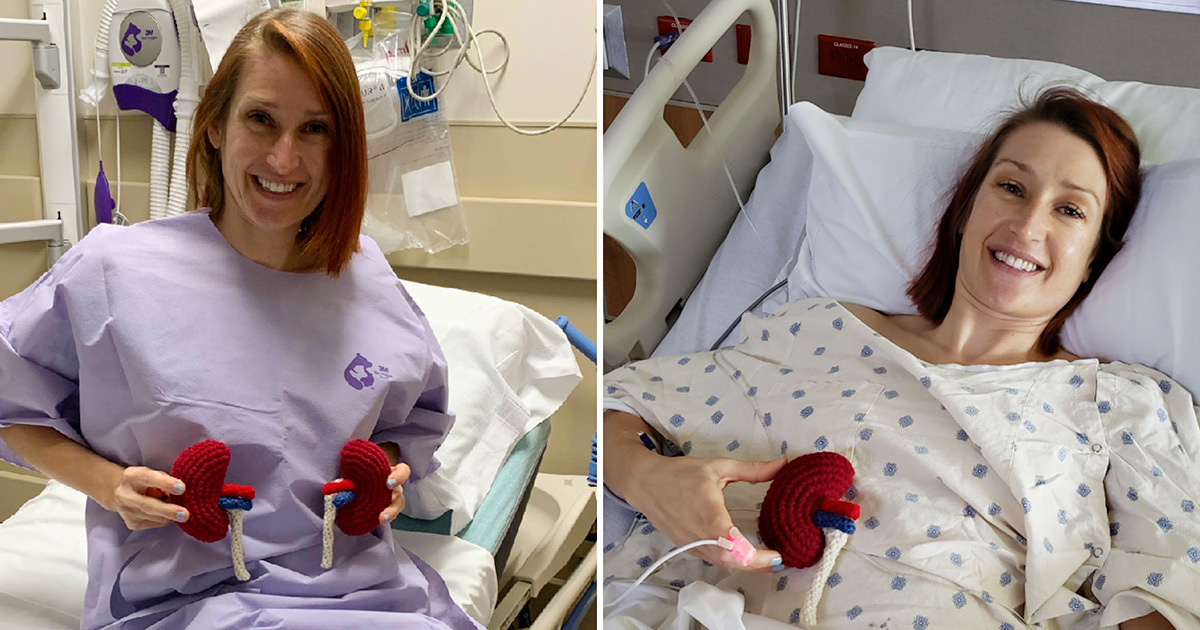
Victoria’s Response
Victoria was inspired to become an altruistic kidney donor by a desire to leverage her own health as an athlete to help others. “I don’t really know anyone with kidney disease, but I am quite fit and healthy. I run, and I ride my bike. My husband and I participate in all the local races. I teach Pilates. I look after my body,” shares Victoria. “My husband and I were hiking in a state park, and I was thinking, ‘What can I do to help other people? How can I use my health and fitness to help others?’”
After some initial research, which included joining a Facebook group (Kidney Donor Athletes) and speaking with a living donor, Victoria began the process of becoming a living donor through the National Kidney Registry and reached out to the newly opened Abdominal Transplant Center.
Following a rigorous series of physical and mental health screenings and tests, Victoria’s kidney donation was approved. On February 24, 2022, she became the Abdominal Transplant Center’s first altruistic donor and second patient to undergo kidney procurement surgery. The procedure to remove Victoria’s left kidney was led by UT Health Austin abdominal transplant surgeon Nicole Turgeon, MD, FACS, who serves as the Transplant Director for the Abdominal Transplant Center. Victoria’s healthy kidney was flown from Austin to New York, where it was given to a patient living with kidney failure later that day.
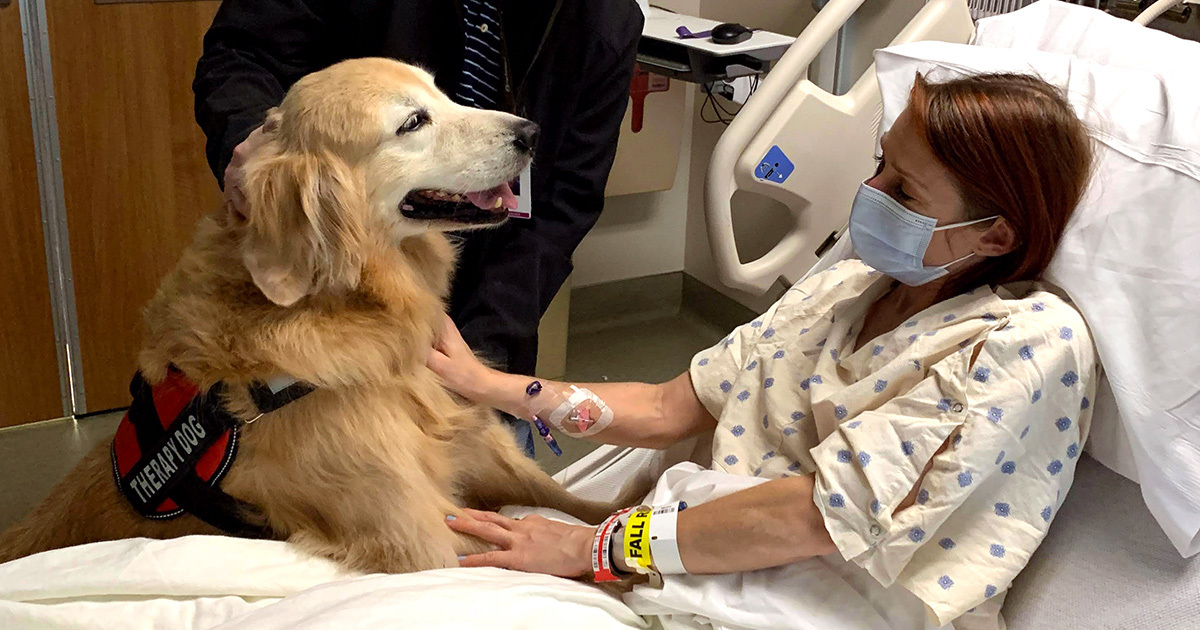
Read about Dom, the first patient to undergo a kidney transplant at the Abdominal Transplant Center.
The Gift That Keeps on Giving
Victoria appreciates the fact that her kidney donation will initiate a string of donations benefiting several kidney patients. “Being part of the National Kidney Registry’s paired exchange donation program means my kidney will go to a recipient and, in turn, their kidney donor, someone who wasn’t a direct match to them, will donate to another recipient and so on and so forth. In total, I’m part of a chain where four people will receive kidneys from donors,” explains Victoria. “It also means that at some point, the Abdominal Transplant Center is likely to receive a kidney from the registry to transplant in another person living in Austin.”
After 2-3 days in the hospital and with several weeks of recovery, Victoria can expect to return to her normal, active life. While the surgical procedure to procure an organ from a living patient does come with risks, living with a single kidney does not change overall life expectancy and does not appear to increase the risk of kidney failure in the donor’s future.
“I’ll have annual checks to make sure blood levels are okay. But without any kind of family medical history of chronic disease, I’m confident that I can live with one kidney and still be active and healthy,” says Victoria.
Another benefit of Victoria’s living donor status is that if she were ever to need a new kidney in the future, she would be placed higher on the National Kidney Registry’s list to receive one.
“It’s great to be part of something that is bigger than me and my kidney,” shares Victoria. “I’m so glad I’ve done this journey, and I hope I can share my story with others and inspire them to become living kidney donors.”
“I would encourage as many people as possible to take that first step,” she continues. “Do the research. Connect with the transplant center. You can potentially help someone improve their quality of life and sustain someone’s life. I hope more people will consider participating.”
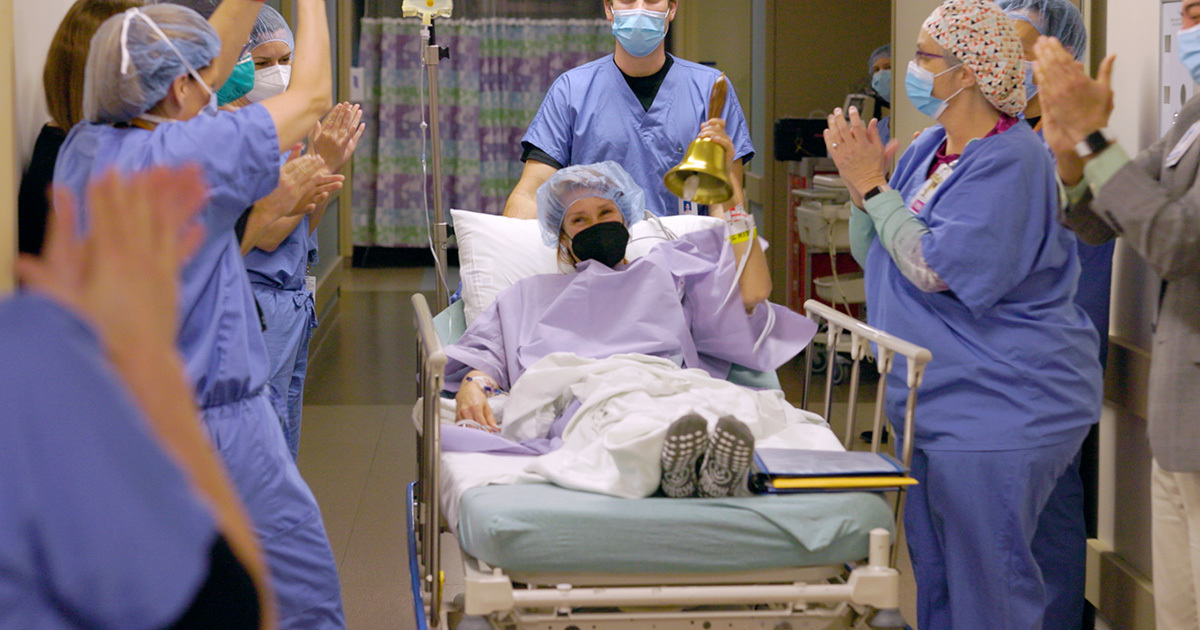
To be considered for living kidney donation, please complete the online medical screening questionnaire.
The Abdominal Transplant Center will also offer services for patients in need of a pancreas transplant and those who may need a simultaneous kidney and pancreas transplant later this year. The Abdominal Transplant Center hopes to develop a liver program in the next 3-5 years. Patients in need of a pancreas or liver transplant currently have to travel to San Antonio, Houston, or Dallas to receive care.
For more information about the Abdominal Transplant Center or to make an appointment, please call 1-512-324-7930 or visit here.
